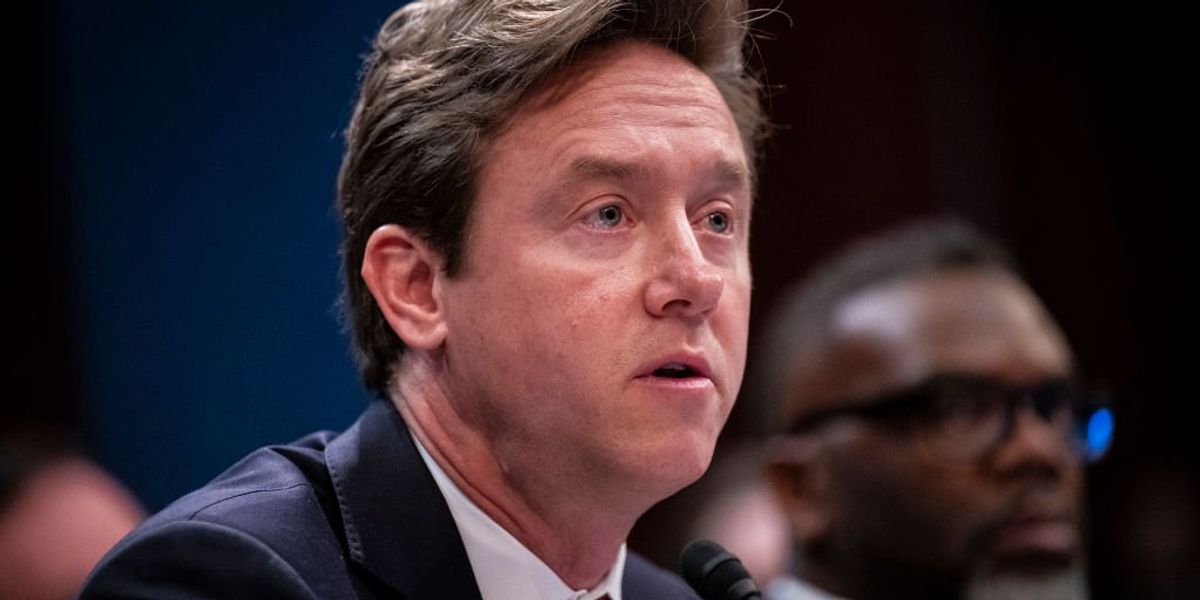Democratic Denver Mayor Mike Johnston and his crew stirred up some controversy by using Signal, a messaging app known for its auto-delete feature, to keep their immigration crisis talks under wraps. KCNC-TV spilled the beans, revealing that the mayor along with 14 top advisors and attorneys formed a “Strike Force” on this app to discuss sensitive matters secretly. The app’s encryption and message deletion capabilities masked their conversations, leading to whispers of secrecy and lack of transparency.
Joshua Posner, who’s the mayor’s director of strategic initiatives, sent out a directive on January 15 nudging the team to switch their immigration discussions to Signal, KCNC noted. Posner’s message was clear: “We are going to use Signal to communicate with Strike Force so that communication remains encrypted and secure (and messages auto delete).” He even walked the team through downloading the app onto their phones.
Denver attorney Steven Zansberg slammed the mayor’s methods as “unlawful,” arguing that it strips Coloradans of their right to monitor public affairs. Zansberg pointed out the typical “three-year records retention requirement” and criticized what he saw as a blatant attempt to dodge transparency. He wrapped up by calling it a deliberate effort to keep the public in the dark.
Jeff Roberts, who heads the Colorado Freedom of Information Coalition, echoed similar views, saying the move was a blow to the state’s open records law. “This is not transparent,” Roberts emphasized, adding that the city was essentially signaling that these records should remain hidden from the public eye. The city set the tone from the start, suggesting these were records the public should never see.
When KCNC confronted Johnston’s office about the secretive messaging, they shifted the blame to President Donald Trump’s administration. Jordan Fuja, speaking for the mayor, claimed that when Trump took office, it sparked concerns about changing federal-city interactions that could affect Denver’s operations. Fuja explained the group was formed in January to efficiently track and share information related to federal actions affecting Denver.
Fuja asserted that Denver’s retention schedule doesn’t require city employees to keep electronic mail messages. According to KCNC, the Signal messages were set to vanish automatically from January 15 to January 29, after which the auto-delete feature was turned off. This shift to Signal happened just weeks after America First Legal demanded Johnston’s administration hand over immigration-related communications.
America First Legal had requested “all records, including communications, calendar entries, and documents mentioning or belonging to Mike Johnston, Mayor since November 1, 2024.” This demand put the mayor’s office under scrutiny about what they were potentially hiding with their use of Signal. The timing of the switch raised eyebrows and questions about the administration’s commitment to transparency.
Signal, known for its strong encryption and privacy features, was chosen to keep sensitive discussions away from prying eyes. The mayor’s team believed this was necessary to navigate the turbulent political landscape under Trump’s administration. But critics argue that it was a convenient way to sidestep public accountability.
The use of Signal for government communications raises concerns about transparency and accountability in public office. While the mayor’s office defended the move as a practical measure, transparency advocates see it as a troubling precedent. They argue that public officials have a duty to conduct their business openly, ensuring citizens have access to important information.
Denver residents are left questioning the motives behind using such secure communication methods for public matters. The secrecy surrounding these conversations has sparked debate over the balance between security and transparency in government. Critics demand answers, calling for a reevaluation of how public officials handle sensitive information.
The controversy highlights a broader issue of how technology is used in government communications. As more officials turn to encrypted apps, the challenge of maintaining transparency grows. This case serves as a reminder of the importance of balancing privacy with the public’s right to know.
For many, the scandal underscores the need for stricter guidelines on using secure communication tools in government. As technology evolves, so must the rules governing its use in public office. The scandal in Denver could prompt lawmakers to revisit these guidelines to ensure transparency isn’t sacrificed for security.
In the end, the public’s trust in their leaders hinges on open and honest communication. The Denver incident is a wake-up call to all public officials about the importance of maintaining transparency. Citizens expect their leaders to conduct business in the open, not behind a digital curtain.
The Denver Mayor’s office faces a challenging road ahead as they work to rebuild trust with their constituents. The controversy has sparked discussions on how to prevent similar situations in the future. As public scrutiny intensifies, the pressure is on for leaders to prove their commitment to transparency.
The Signal scandal might be a local issue, but it echoes a national concern about transparency in government. As technology continues to evolve, so too does the debate over its role in public affairs. The Denver case could set a precedent for how future situations are handled across the country.
Public officials must tread carefully when using technology to ensure they don’t compromise transparency. The Denver situation serves as a case study in balancing privacy and the public’s right to know. Moving forward, leaders must prioritize open communication to maintain public trust.
The controversy may encourage other cities to reevaluate their communication practices. As the debate over government transparency continues, the Denver case offers valuable lessons. It highlights the importance of clear guidelines and accountability in using technology for public communications.
Denver’s use of Signal for sensitive discussions puts a spotlight on the need for transparency in government. The public deserves to know how decisions affecting their lives are made. As the story unfolds, it remains a significant example of the ongoing battle between privacy and transparency in public service.




Despicable,,satantic, unqualified filth,,,,just like alll dems in Colorado who have ruined the state